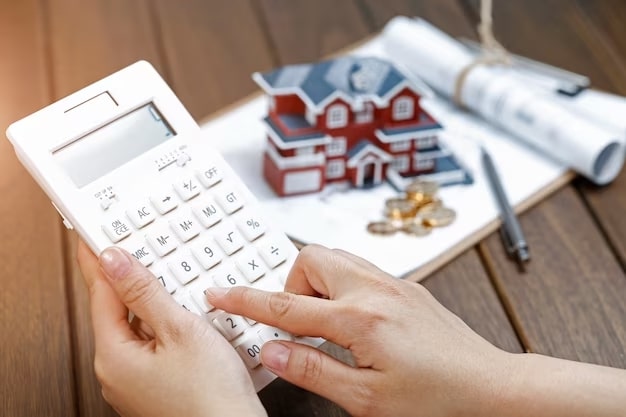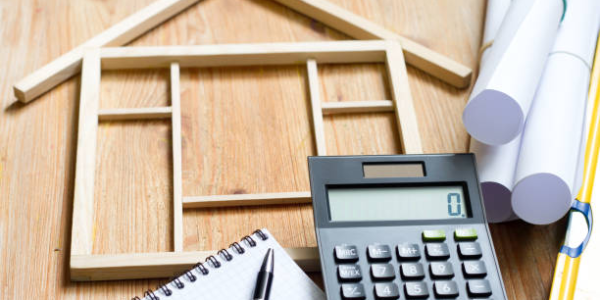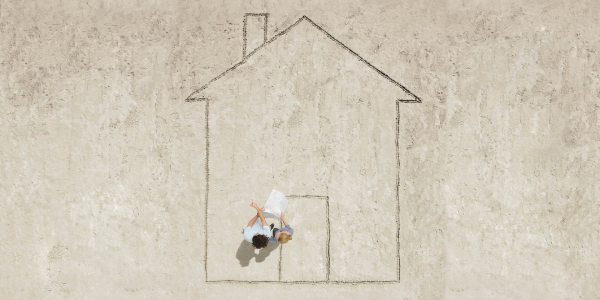How much does it cost to deed a house in Spain?
If you are going to buy a property, you have to take into account a series of expenses associated with the purchase, including the price of the deed to the house.
If you are going to buy a property, you have to take into account a series of expenses associated with the purchase, including the price of the deed to the house. In order to formalise the purchase of the property it is necessary to go before a notary and draw up the purchase document in a public deed. Do you want to know how much it costs to deed a house? We tell you everything you need to know about the deed properties in this article.

What are the deeds of a property?
If you want to buy a house, you need to know that the title deeds of properties are extremely important, as they are the document that serves to guarantee that the commercial transaction has been carried out legally. This document contains all the details of the property: the construction, the surface area, its location, possible encumbrances, value, who owns it and other details relating to the property.
When the purchase of the property is formalised, the parties (seller and buyer) must go before the notary public. The deed notary will attest the house deed that is formalised, in accordance with the provisions of current legislation.
How can I deed a property?
Once the purchase contract is signed and payment for the property is made, the notary must elevate the document to the status of a public deed on house. That is to say, to attest and register it with the corresponding authorities.
In this way, thanks to the house deed, the Land Registry, the Cadastre and other interested administrations will know that the property has changed ownership (second hand) or has been acquired by someone (new construction).
Having the house deed is a legal security for the owner, as only then can the property be disposed of. For example, to rent out the property, to carry out renovations and even to contract the electricity, gas and water supplies. But how much does it cost to have a deed on house drawn up at the notary?
How to obtain a deed to a house
If you have bought or are going to buy a second-hand property or an old house, you are probably wondering how to get a title for a house and how much does a deed cost.
When you contract the services of a notary public, you can not only ask them to draw up the house deed, but also to make the corresponding payments derived from the commercial transaction.
In the case of a second-hand purchase, the buyer must pay the ITP or Transfer Tax (Impuesto de Transmisiones Patrimoniales), as well as the Stamp Duty (Impuesto de Actos Jurídicos Documentados). On the other hand, the deed notary is also in charge of registering the house deeds in the Land Registry so that the change of ownership of the property becomes public.
So when it comes to finding out how to obtain a deed on house and what it costs, not only must the notary’s fees for issuing the document and the copies of the same be taken into account, but also all the taxes and management costs associated with the registration.
Transfer of deeds cost
If you have bought or are thinking of buying a newly built house, you may also be wondering how much it costs to deed a new house. The rules for calculating the deed price of a new house are more or less the same as for a second-hand house. However, in this case you do not pay ITP but VAT. This is one of the big differences in the price, house deeds, new housing and old building.
Transfer of deeds cost include VAT. This is fixed and is 10% of the deeded amount; unlike the ITP which varies depending on the Autonomous Community where the property is located. On the other hand, the percentage of VAT to be paid when you want to obtain a house or apartment deed also varies depending on the type of property, since if it is a Special Regime Social Housing or if it is a public development, then the VAT rate is 4%.
In addition to the costs of the deed on house, there is the Stamp Duty Tax and notary fees for the deed of sale, as well as the registration formalities at the Land Registry.

How much does it cost to execute a deed at the notary?
The cost of deeding a property depends on a number of factors. This includes, as we have already mentioned, the type of property (VPO); it also takes into account the number of copies of the title deeds that are requested. Thus, the price of the sale deeds of the property can cost between 0.20 and 0.50% of the value of the property. To give you an idea of how much the title deeds of a house cost, if the property costs around 200,000 euros, the price of the sale deeds will be between 400 and 1,000 euros. Of course, the amount increases depending on the price of the property.
And what is the cost of do the transfer of deeds cost? Here it is necessary to consider how much the notary charges for this act. The amounts are regulated by the state and the average price is 300 euros. However, other costs must be added here, such as taxes and even the formalisation of the mortgage loan. In other words, these 300 euros (approximate) are only the notary’s fees for notarising the property.
How much does a deed cost?
Now that you know all the details, it is time to calculate how much it costs to deed a house in Spain. To do this, it is essential that you also know what is needed to deed a house:
- Payment of the notary’s fees or tariffs. These can be from 300 to 1,200 euros.
- Land registry fees. Cost of between 400 and 650 euros.
- Acquisition taxes. To calculate the deed expenses for a new or old building, it is important to take into account the taxes. ITP for second hand properties; VAT of 10% on the cost of the deed for new construction and 4% when it is a VPO.
- Stamp duty (Impuesto de Actos Jurídicos Documentados). The costs of deeding a house also include this regional tax, which can be between 0.5 and 1.5% of the value of the property.
You can already get an idea of how much it costs to deed a house, including taxes, but it is also important to know that the cost of a new deed also depends on the number of copies requested from the notary.
In reality, the notary is the one who keeps the original of the title deed; one copy goes to the Registry and another to the owner of the property. So, in case of loss, theft or damage, you can go to the notary to ask for a copy.
How much does it cost to make a copy of the title deeds of a house? It all depends on the number of pages the document consists of; the estimated price is between 75 and 80 euros. This copy can be requested at the time of the deed or in the future.
How can I find my house deeds?
Finding the deeds to your home is an important step, as these are legal documents that establish ownership and other important details about the property. Here are some steps you can take to get your title deeds:
- Go through your personal files at home. Look in folders or boxes where you may have stored important documents.
- Contact your notary or lawyer. They may have a copy of the deeds on file.
- Check with the land registry in your area. You can request an official copy of the deeds by completing a form and paying a fee.
- Research online land registry services. Some countries offer electronic access to property records.
- Ask your bank or mortgage lender. They may have copies of the deeds if you have a mortgage on the property.
- Consider hiring a real estate professional if you need additional help.
- Remember to keep the deeds in a safe place and have backup copies in case of loss or damage.
In summary, if you are wondering: “how can I find the deeds to my house?”, the key is to keep them in a safe place at home and make several copies. However, if you still cannot find them, you can go to various agencies such as the Land Registry.

How to transfer a house deed?
Transferring a house deed involves several steps to ensure legal compliance and proper documentation. If you want to know how to transfer the deed to a house, you will need to know a general guide:
- Understand Local Laws.
- Obtain a deed transfer form. Fill out the form accurately, including details of the current owner (grantor) and the new owner (grantee), as well as a legal description of the property.
- Sign the deed in the presence of a notary public.
- Once signed and notarized, file the deed with the appropriate government office.
- Notify relevant parties of the ownership change, including mortgage lenders, insurance providers, and local tax authorities. Ensure that records are updated to reflect the new ownership.
- Real estate transactions can be complex, so consider seeking guidance from a real estate attorney or title company to ensure a smooth transfer process.
What is a deed of trust and what is it for?
The deed of trust sets out the legal framework for the creation and administration of a trust, which is a legal arrangement in which one party (the trustee) holds property or assets on behalf of another party (the beneficiary).
Overall, a deed of trust is a crucial document in the establishment and administration of a trust, providing the legal foundation for the management and distribution of assets according to the wishes of the grantor.
While a house deed is used to transfer ownership of a house from one individual to another in a direct and specific manner, a deed of trust is a broader legal arrangement that may involve the transfer and management of various types of assets, including real estate, for the benefit of designated beneficiaries.
What is a deed of reconveyance?
A deed of reconveyance is a legal document by which a person, who had previously transferred ownership of real property to another party, reacquires that property. In essence, it is a reversal of the original transfer of ownership.
This type of deed is used in situations where the original seller wishes to repossess the property for specific reasons, such as breach of contract by the buyer, legal or financial problems, or simply because they wish to take back the property for some other reason.
The deed of repossession sets out the terms and conditions under which the transfer back takes place, including any financial compensation that may be involved and any other relevant legal provisions. It is important to note that the specific details of a deed of reconveyance may vary depending on local laws and the individual circumstances of the case.

Importance of the trust deed
The trust deed is central to asset management and estate planning. By establishing a relationship of trust between the trustee and the beneficiary, it provides asset protection, confidentiality, flexibility in administration and fulfilment of the settlor’s specific objectives. In short, the trust deed ensures effective and compliant management of the settlor’s assets.
Now that you know how to get a house deed and what costs you have to bear, such as the deed notary, don’t forget to do your calculations and have a sufficient percentage of the value of the property. Experts recommend having 20% more than the value of the property.
Related articles
Descubre promociones que te pueden interesar
Discover your new home with MiA
We have launched our virtual agent to help you find the property you are looking for.
Ask MiA and get personalized recommendations to find your dream home. Try it now!



